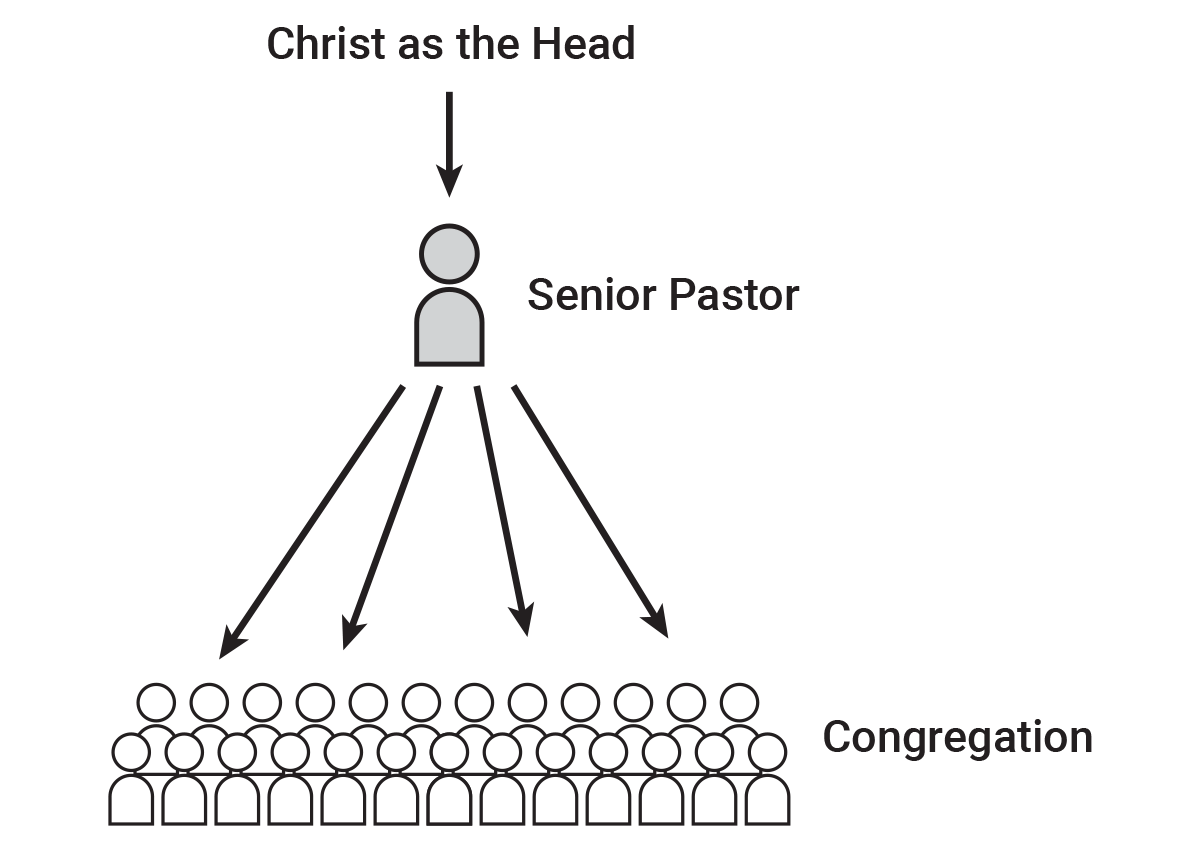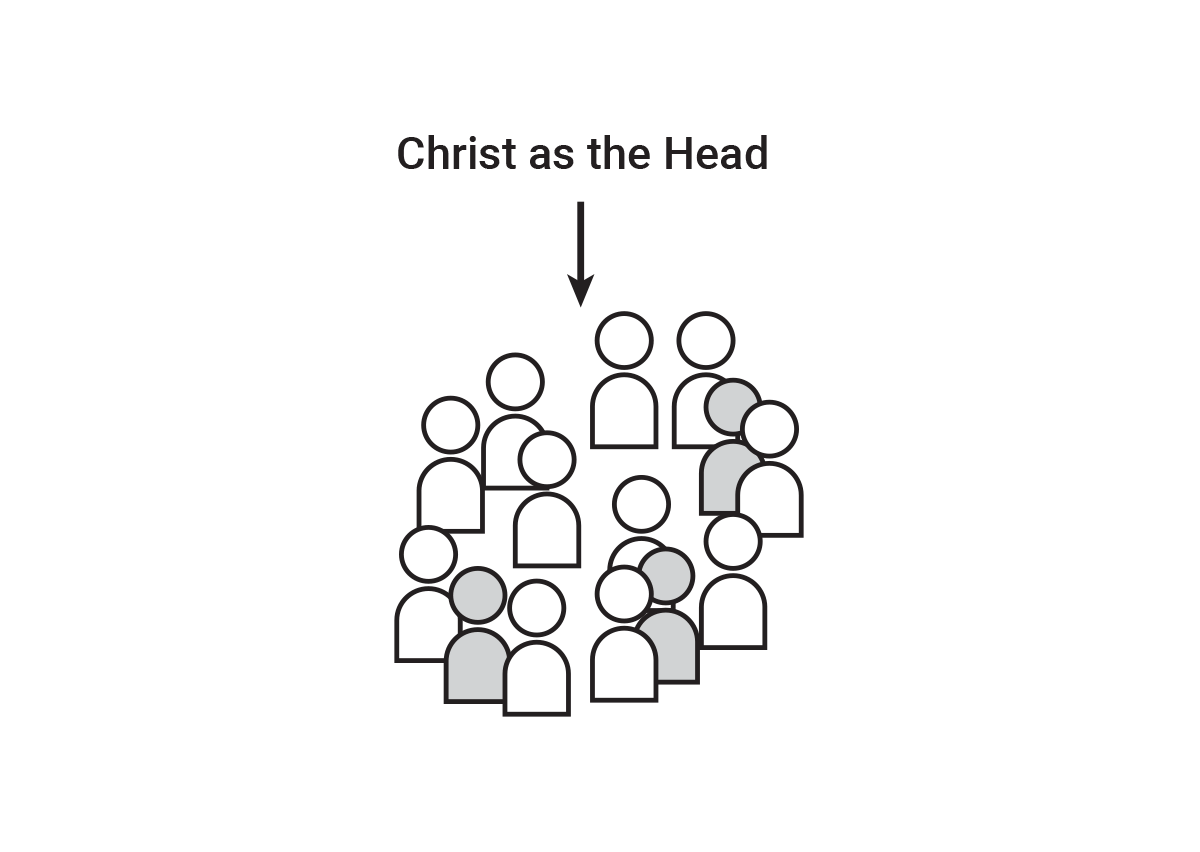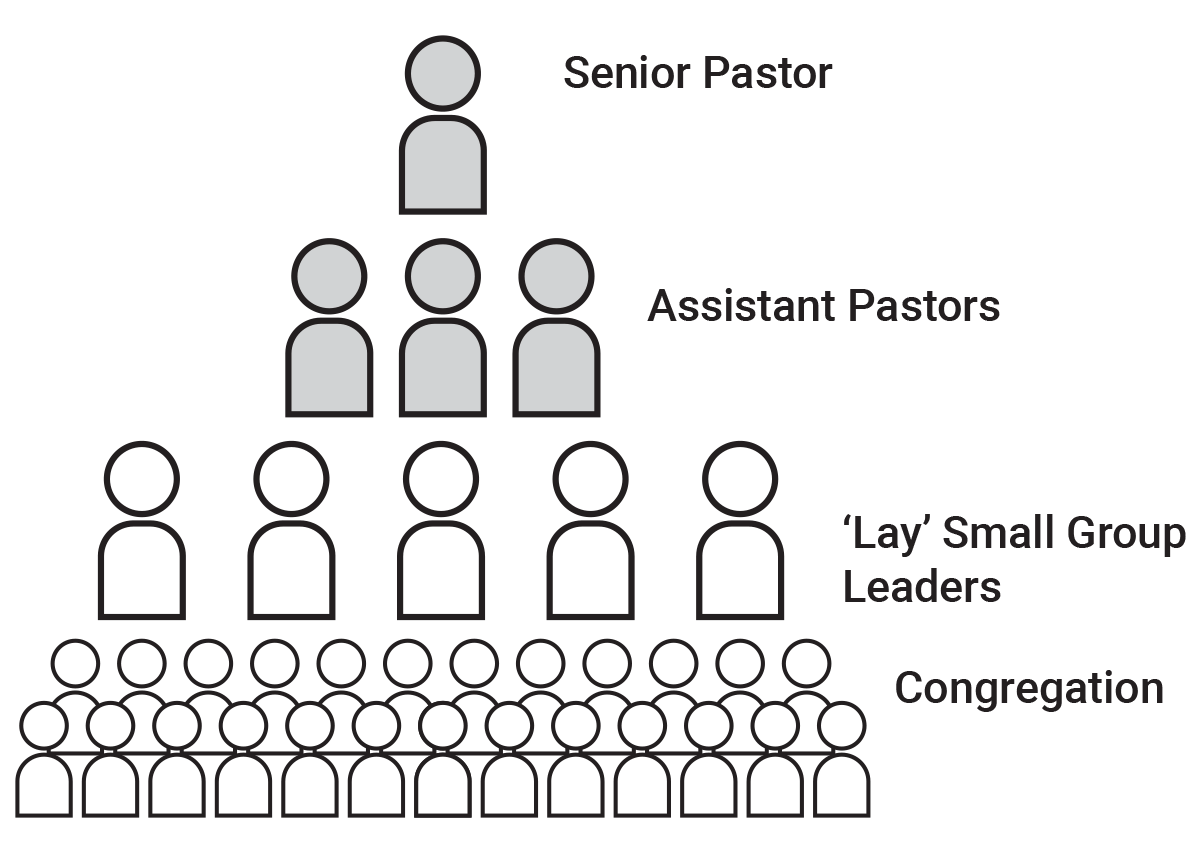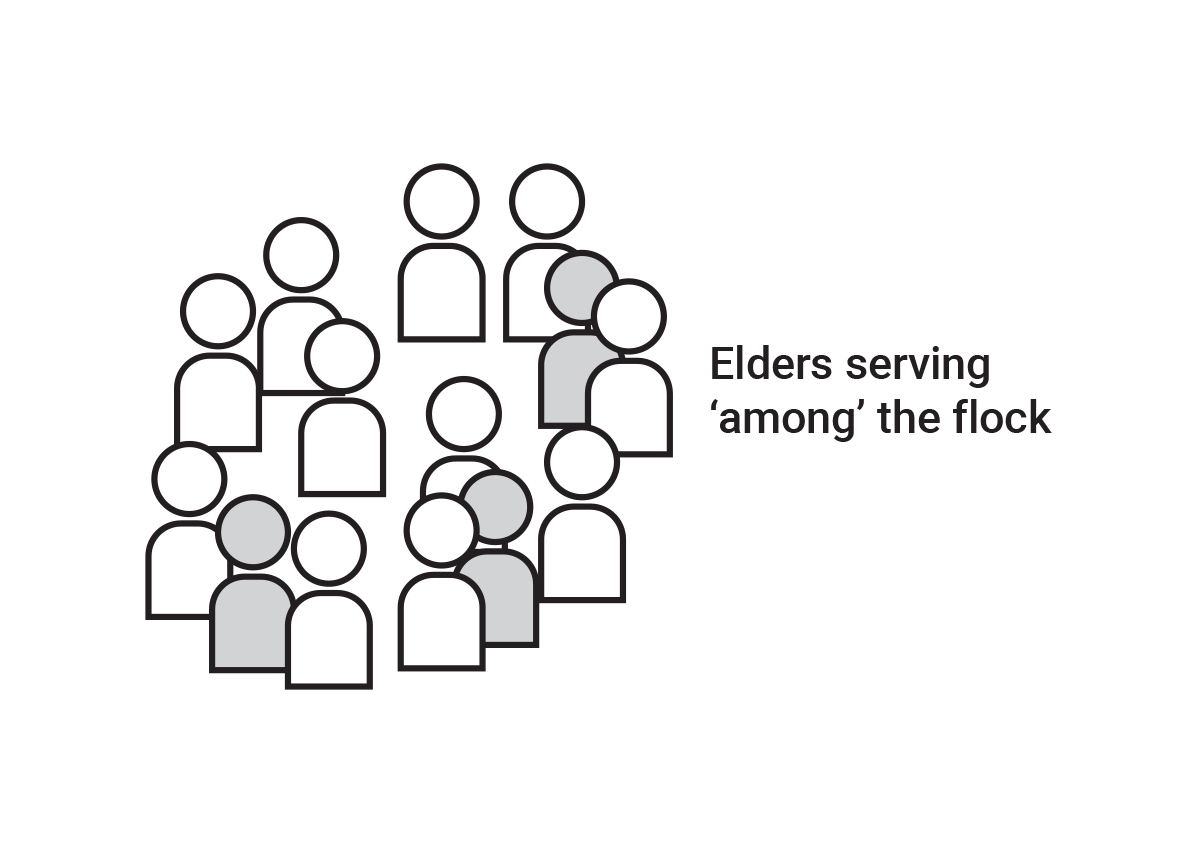Church in Navarre, FL
Navarre Simple Church
As an introduction, my name is Eric. My wife and I live in Navarre, FL (which is near Pensacola, Gulf Breeze and Ft. Walton Beach) and have been praying about starting a basic, simple, New Testament church.
Specifically, we are praying about others joining with us - as the Lord is leading them.
We realize that there are a number of good churches here in Navarre and we are supportive of the work Christ is doing through the believers there.
Our desire is to start a simple church, as the Lord opens those doors. If this sounds interesting to you, read on. Then reach out to us through the contact form to start a conversation.
To clarify: Navarre Simple Church is a concept, not an actual church (yet). We hope to connect with several families about starting a new simple church in Navarre, hence the title of this website "Navarre Simple Church".

A few distinctives of a simple church
Throughout the past 2,000 years, churches across the world have taken various shapes and forms regarding core beliefs, programs, building styles, staffing, music styles, outreach focus, and many other areas.
This list of founding principles listed here are meant to allow us to be transparent about our beliefs and help define the direction the Lord is leading us regarding the practical outworking of spiritual truths. This list will probably change with time - but let's put the cards on the table!
Christ is Head of the church
Jesus Christ is Head, rather than a denomination or an individual pastor or even group of pastors/elders. (Ephesians 1:22, 4:15, 5:23; Colossians 1:18, 2:19)
The church.
The church is described as an organism (body - Romans 12:4-5, 1 Corinthians 12:12-22), rather than an organization, where each part has a place in each other's life.
The church is not described as a building, but rather the assembling of believers together in the name of Jesus Christ (Acts 14:27; Acts 15:4; 1 Corinthians 11:18, 14:23). This gathering of the church could happen in a building, a field, a home, or any other place.
Church leadership.
Elders must be qualified according to 1 Timothy 3 and Titus 1. They also should aspire (have a Spirit-given desire to care for others) to be a shepherd of God's flock.
Elders should not be above the 'flock' as 1 Peter 5:3 says "nor lording it over those allotted to your charge, but proving to be examples to the flock". They are placed among the flock - not over (Acts 20:28).
Elders are to watch over the flock - watching out for danger with false doctrine, watching out for hurting people, knowing the flock well (1 Peter 5:1-4; Acts 20:27-31).
Elders are to be able to teach the flock, so that they can teach the truth to the flock and they can refute those who contradict. This group of godly men is a safeguard for the church (1 Timothy 3:1-7; Titus 1:5-16).
Church leadership is designed by Christ to be a plurality of elders, rather than one ‘senior pastor’ (1 Timothy 3:1-7; Titus 1:5-9; Acts 20:17).
Elders must remember that this is God's flock (1 Peter 5:2) and they are only temporary managers of these believers. They are called to do the work of a servant shepherd.
These elders are to be on guard for spiritual dangers for the flock (Acts 20:28).
They are to hold each other accountable to the high standard of elders (Acts 20:28-30).
Elders who are doing the work of shepherding well should be compensated for that work by those that are receiving the benefit (1 Timothy 5:17-18; 1 Corinthians 9:14), although this would not necessarily equate to a salary for an elder, evangelist, missionary, etc., but rather gifts being given as the Lord prompts His people to voluntarily give.
Christ's final teaching to His disciples (who would be the first elders/shepherds) was to wash one another feet (John 13), leaving an example of servant-leadership.
Preaching.
Teaching, exhorting, word of wisdom, and preaching in the church done by several (but not all) men who have a speaking gift (1 Peter 4:10-11) who have studied the scriptures and through whom the Holy Spirit is able to freely speak through. This will include elders and non-elders within the body of believers.
Priesthood of all believers.
Every believer is described as a holy priest (2 Peter 2:5) and royal priest (2 Peter 2:9), rather than the common and unbiblical idea of ‘laity’.
Service by the church is done by all members.
Some servants are hand-picked because of their good character as set apart for serving others. They are called deacons (1 Timothy 3:8-13). Deacon simply means servant or waiter of tables.
Christ communes with every believer, teaches, directs, uses each one to minister to each other member. Elders serve among the church, not over.


Spiritual gifts.
Ministering to one-another is done by all believers in the church.
We believe that every believer is a priest and that ministry is not to be restricted to paid staff or ordained ministers.
Each believer has been given at least one spiritual gift (1 Corinthians 12:7), and they are to serve Christ using that Spirit-powered gift.
Every believer is to minister to one another (1 Peter 4:10), rather than relying on a few paid staff to do the ministry.
Gifts include serving, showing mercy, teaching, giving a word of wisdom, encouraging/urging others, helping others to trust God to work and provide, leading/administering, and others.
We believe in the cessation of some of the gifts - specifically the sign gifts like prophesy, miracles, healings, tongues, and interpretation of tongues. These were used by God for a specific purpose - giving credibility to the message of the gospel during the infancy of the church, but since the written word of God is available, these gifts have ceased to be used (1 Corinthians 13:8-10). We know that God could restart using these gifts for a specific purpose at any time that He chooses. We've heard of missionaries who have seen God work healings and other miraculous things to reach hardened souls in unreached people groups. But not having seen that first-hand, it is hard to give comment on that. We do know that in the 45+ years of being a believer, I've never met a person with the gift of healing, but I've met a lot of people with physical pain and suffering - and that if there was the gift of healing present today, we would see at least one or two examples over the years. The good news is that God is able to heal without attaching it to a person's gifting! Thank the Lord for that!
We should be good managers of the gifting that we have received, grow in our spiritual maturity, keep practicing our gift, find others with the same gift to encourage us, and to stay busy serving one another.
Hospitality.
This command to be hospitable to each other allows believers to spend time together to serve. A Sunday morning gathering of the church is just the tip of the iceberg for the ministry needed in each person's life. We would encourage all believers to intentionally invite fellow believers over weekly, plus reach out to neighbors and have them in your home as well. (Romans 12:13)
Weekly remembrance of Christ (1 Corinthians 11:23-26).
This is one of the top requests that our Savior gave us - was to remember Him often. Often could mean monthly or yearly, but our desire is to do it as often as the church meets - and be a priority in our lives.
This remembrance of Christ (also called communion and the Lord's Supper) can and should be much more than a 6 minute 'interruption' to a church service.
We've been a part of a church in our past where 45 minutes to an hour was set aside weekly for a 'remembrance meeting'. In this meeting, brothers would stand up and share scripture, pray, and call out hymns as the Spirit led; followed by breaking the bread and passing it around, along with the cup.
This precious time of focusing our attention on Christ brings worship to our Savior, honors Him, and puts Him first in our hearts.
We would like to be able to do this with other believers weekly as well - and honor our precious Savior. He is worth it.
Biblical roles.
In our age of political correctness, we rarely hear about this topic from the pulpit. We'll write more about this, but for now, this is a short summary.
God has designated men to take the lead in homes and in the meeting of the local church (1 Corinthians 11:3; Ephesians 5:22-33).
Women are designed by God to follow the men, voluntarily submitting to their leadership in an appropriate way.
Men are not over women in value or worth before God, but are equally purchased by the blood or Christ.
The elders are to be qualified by their character including that they be "the husband of one wife" (1 Timothy 3:2) - teaching us that elders/pastors are to be men, not women.
Both men and women have spiritual gifts, but men are to be the ones publicly speaking, preaching during the meeting of the local church (1 Timothy 2:11; 1 Corinthians 14:34-35). Women are instructed to remain silent during that time, but otherwise are free to exercise their spiritual gift.
God's sovereignty and man's free will.
This opens a can of worms, but it is necessary to do so at this point in the conversation. Unfortunately, this doctrine has become a divisive wedge between believers. We aren't going to be able to iron that out in our lifetime.
On the topic of Calvinism, we strongly disagree with the 5 points that are commonly believed about this doctrine.
We know a number of good brothers and sisters in Christ who see it the opposite way, so we desire to be gentle, but stand firm to the truth of God's word.
1 Timothy 2:3-6 says "This is good an acceptable in the sight of God our Savior, who desires all men to be saved and to come to the knowledge of the truth. For there is one God and one mediator also between God and men, the man Christ Jesus, who gave Himself as a ransom for all, the testimony given at the proper time." If the Holy Spirit inspired Paul to write here instead 'who desires all the elect to be saved', or 'who desires some men to be saved', then the Calvinist doctrines would begin to have some foothold. But it does not say that.
This doctrine affects the way we view of the character of God and our mission to reach the lost.
We don't want to be boxed into a category on this. Usually the view is you are either a Calvinist or an Arminian. We have never fit into either category. Recently we found Dr. Leighton Flowers on the Soteriology 101 channel on YouTube who is a Provisionist. His explanation on this debated topic is very convincing. Countless other Bible teachers believe and teach the same thing.
Again, our mission in life is not to go on the attack against believers, but to stand firm in the truth of God's word.
Church programs.
Church programs can be useful to keep things organized especially as churches get large and the small number of pastors have less ability to work with everyone.
In a simple church, there are no programs. It is just the body of Christ gathering together functioning as it is designed to.
Families attend the church gathering together. There is no nursery, children's 'church', youth group, college group, young professional group, seniors group, women's group, etc. Instead it is family-centered and whole-body focused.
Young have a chance to learn from the older. Older have a chance to be energized and challenged by the younger. Lifelong friendships among all the body start to form.
Young believers are encouraged to discover and start using their spiritual gifts. Everyone knows each other.
This works because of the size of a simple church, plus the plurality of shepherds, and all members caring for one-another.
Church growth. Church building.
The Lord causes the growth of His body.
We are called to faithfully minister, boldly tell others (neighbors) the gospel, and humbly serve one another. In this process, the expectation is that neighbors will get saved, be baptized, join the local church - and need a lot of assistance.
We believe that the church should have a spiritual 'nursery' mindset - where new believers are nurtured and given special care to grow.
As more believers are added to the church, the first thing that the traditional church does is to build a large building to hold everyone.
Our desire is to keep things simple and rather than building a building and taking on a huge expense, to instead split into another group. If group sizes are 20-50 in size (which represents about 5-10 families), it allows the believers to know each other well, no one slips through the cracks, everyone has a purpose, etc.
This size group can fit into a larger home (although it would be getting tight), and naturally the desire would be to find a second home to move some of the believers into.
If there were at least four elders in a group of 50, two of the elders could go with 25 members and start a new local church in another neighborhood - reaching that area.
And as multiplication happens of these simple churches, the reach to the region grows.
Networking.
Denominations have pros and cons. What we are thinking of would be more of a network of simple churches as the Lord allows growth.
A network can help local churches to support and cooperate with each other.
This allows each local church to function independently of each other, rather than centralizing control and leadership.
Each church can help other churches out - especially with needs that exceed the one church's ability.
It would also make sense for church elders to meet together regularly to encourage and teach one another.
Men with a speaking gift could occasionally speak at another church if there was a need.
Perhaps annually, all the churches could get together to have a Bible conference to hear good preaching, get to know one another, and to encourage each other.
Music.
We appreciate music that exults the Lord - from traditional hymns to modern worship music. The focus should be on the message and doctrine of the music, not the emotion of the tune. Many hymns contain rich theology that has spanned centuries.
Does this description resonate with you? Pray about it and perhaps reach out to us to connect. We would love to have a conversation at one of the Navarre coffee shops.
A Home-Based Church
If you have read the New Testament, it is hard not to notice some distinctives of the early church, including that the church is not described as a building, but rather the assembling of believers together in the name of Jesus Christ (Acts 14:27; Acts 15:4; 1 Corinthians 11:18, 14:23). This gathering of the church could happen in a building, a field, a home, or any other place.
Meeting in homes simplifies a lot of details.
Consider a medium sized church in America.
Here's a hypothetical example:
| Example Church | Simple Church | |
|---|---|---|
| Annual Budget | $7 million | $0 |
| Pastor & Staff Salaries | $4 million | $0 |
| Facilities & Maintenance | $800,000 | $0 |
| Percentage of giving to missions | 12% | 100% |
In a simple church, 100% of giving goes to actual needs. The needs could be fellow members going through a tough time, generosity to neighbors, supporting missionaries who are serving overseas in areas where they are unable to earn an income, showing honor to elders who work hard at preaching and teaching.
In a simple church, no offering plate is passed around. No money needs to be collected by the church. No building needs to be purchased by an entity. No staff is being paid. There is no need for a non-profit organization to be created. It's just simple. The church exists because the members care for one another.
This frees up time, money and resources to go directly into the Lord's work.
What are some other terms that people look for when searching for a local church?
- Church
- Local church
- Assembly
- Chapel
- Bible chapel
- Bible church
- New Testament church
- New Testament assembly
- Home church
- House church
- Simple church
- Plymouth brethren assembly
Each of these words probably has a different meaning to different people, depending on their own personal background and history. I've known people who say "we go to an assembly" meaning a Plymouth Brethren assembly, but the person listening to them thinks Assembly of God. And Plymouth Brethren assembly could mean a couple of different things. So we'll use these terms here to help to describe some aspects of a local church, but by no means is this exhaustive or clarifying.


